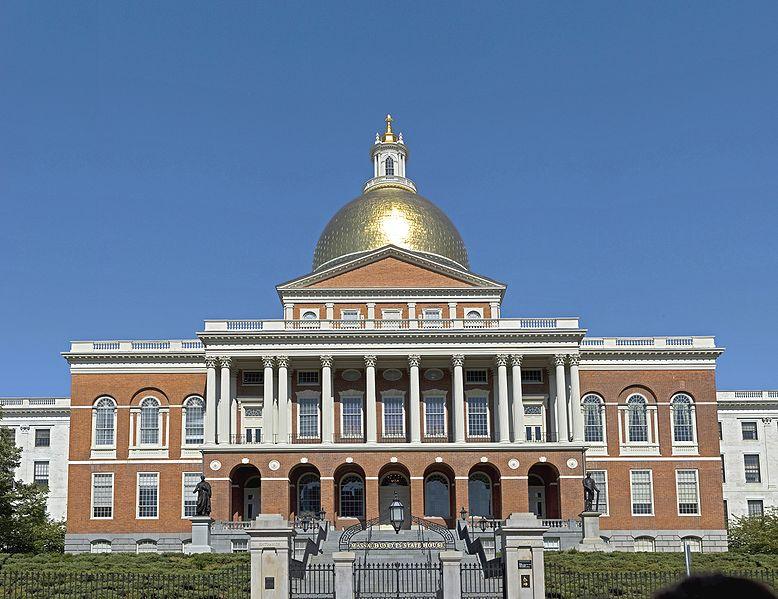New research finds Massachusetts a leader in energy conservation
Massachusetts political leaders have helped position that state to be one of the leaders in energy conservation. (Photo by Fcb981 via Wikimedia Commons.)
Massachusetts is leading the pack among states on energy conservation efforts.
That’s the results of a new study from the American Council for an Energy Efficient Economy. Massachusetts is using less energy per person thanks to smart policy and big investments in programs to save energy, the study found.
The Washington, D.C.,-based non-profit Alliance to Save Energy played host to a breakfast in Boston recently to recognize Massachusetts Governor Deval Patrick for his efforts.
“What we are trying to do differently in the area of clean and alternative energy is to govern for a generation,” he said. “How do we make those big choices now — BIG choices now — that are really going to make us stronger over a generation to come.”
Massachusetts has ambitious goals: by 2020 to reduce greenhouse gas emissions to 25 percent below the 1990 levels. By midcentury, they’re aiming to reduce it to 80 percent below 1990 levels.
Patrick’s administration supports clean energy development, but much of the state’s progress has not come from adding clean energy. It’s come from making do with less energy.
“As a result of steps we’ve taken as policy and behavior we see we can fuel almost all of our growth out into the foreseeable future without any new generation at all, we just have to keep that going,” Patrick said.
While Patrick deserves some of the credit, Massachusetts’ march to energy efficiency started long before he took office and, in fact, dates back to previous Democratic and Republican governors including presidential hopeful Mitt Romney.
Doug Foy, a former state official and environmental activist, said Massachusetts was the first state to force electric utilities to invest in energy efficiency measures as if they were new power plants.
“This year, the utility industry in Massachusetts will spend $600 million on energy efficiency in their customer buildings and that’s a big deal,” he said.
Foy, who was an administrator under Governor Romney, helped develop what would become the nation’s first multi-state effort to cap greenhouse gas emissions — RGGI, the Regional Greenhouse Gas Initiative.
“All of those were part of an effort to build as smart and as frugal and as lean a government as you could. And that was something Gov. Romney felt strongly about,” Foy said.
Foy also said that, at the time, Romney took climate change seriously.
“I think he and I probably spent more time talking about climate change issues and the climate plan – the climate action plan that we developed – than probably any other single issue we worked on, and we worked on a lot of issues together,” Foy said.
That stands in contrast, of course, to Romeny’s comments at the Republican National Convention Thursday night when he criticized Obama’s efforts on climate change and promised, instead, to focus on improving the lives of Americans.
Romney’s shift on environmental policy was already evident in 2005, some seven years ago, when he refused to sign the final agreement creating the RGGI, which he’d help start.
Ian Bowles, who spent four years as secretary of energy and environment for Governor Patrick, said that confused people.
“He issued a pretty comprehensive climate change plan. And he took climate change seriously,” Bowles said. “Then about half way through his tenure somehow he concluded he no longer wanted to focus on any of those things.”
That coincided roughly with when Romney really turned his focus to running for national office.
Energy and climate change have become charged partisan issues for presidential candidates and in Congress. That’s why Bowles thinks governors and mayors will remain the ones most likely to act on clean energy.
“The history of American policy development is one of states getting out ahead and then Congress catching up,” Bowles said. “States like Massachusetts and Connecticut and California are moving ahead aggressively. But I think looking to Congress to lead on these issues, I think is a waste of time at this stage.”
Foy agreed.
“It would be nice if we had a more thoughtful national energy strategy. We don’t,” he said.
Editor’s note: A previous version of this story incorrectly stated what organization gave Massachusetts its top ranking.
